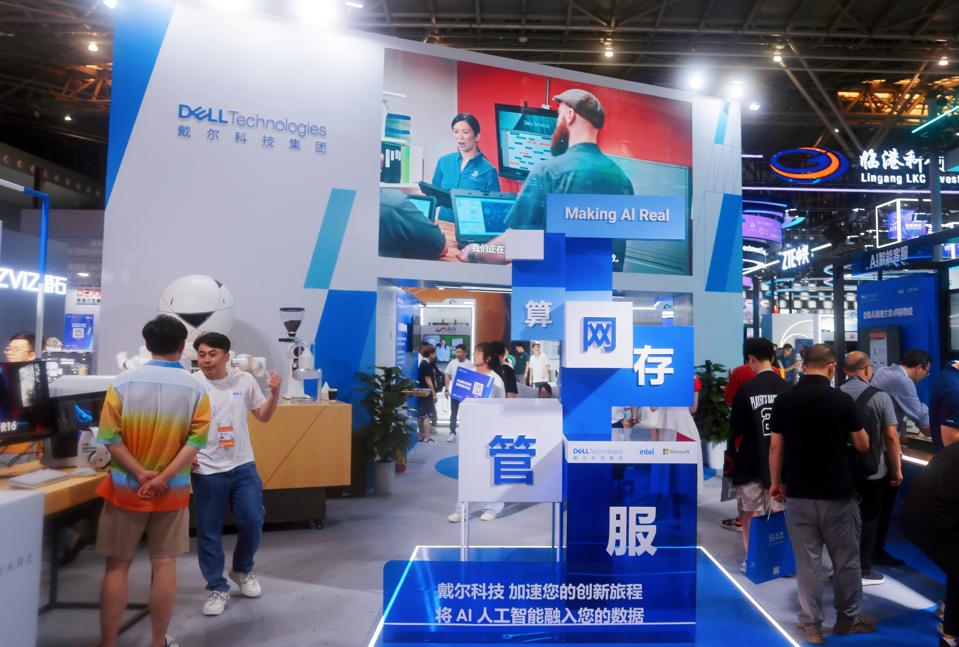My twenty-something kids are home for Thanksgiving—well, at least three of the four—and our conversations are leaving me more alarmed about the future of leadership than ever. Their stories of friends let go in the name of “AI efficiencies,” alongside others struggling to advocate for themselves in toxic workplaces or manage even basic supervisory responsibilities, reveal a worrying trend. In the rush to automate junior roles for short-term gains, companies are stripping the next generation of the very skills that make leadership possible—the so-called “soft skills” that are, in fact, the hardest to learn and the most essential in a digital world.
We’re entering a workplace where AI writes our emails, schedules our meetings, manages customer inquiries, and generates content at astonishing speed. The shift is accelerating rapidly: a 2024 ResumeBuilder survey found that 37% of companies replaced entry-level workers with AI in 2023, with another 44% planning to follow suit. McKinsey estimates that generative AI could ultimately automate up to 70% of time spent on current work activities. For young professionals, the traditional on-ramp into organizational life is disappearing.
But the real cost isn’t measured in lost headcount. It’s in the erosion of the messy, real-world, often awkward experiences that form the bedrock of effective leadership—experiences that act as “courage labs,” teaching young employees how to navigate discomfort, manage accountability, and speak up when it matters most.
Consider Maya, a thoughtful 24-year-old who told me that in her “first real job” at a tech company she monitors AI chatbot performance and updates knowledge bases—tasks that are tidy, predictable, and largely risk-free. What she hasn’t done is speak with frustrated customers, lead a tense meeting, or recover from a mistake made in real time.
What her generation is losing isn’t just professional experience. It’s access to the developmental moments entry-level roles have always provided. AI is effectively erasing the crucible experiences that cultivate courage, build emotional intelligence, and develop the human-centered leadership skills that will matter most in the future.
As I discovered while researching The Courage Gap, our brains process the emotional discomfort of a difficult conversation using the same threat-response circuitry activated by physical pain. We expand our capacity to lead through repeated exposure to situations that stretch us—moments that feel uncertain, complicated, or risky. Entry-level jobs have always been a steady diet of these moments:
- The customer who’s furious.
- The idea that gets shot down.
- The presentation that flops.
- The awkward apology.
- The failed project you learn to defend—and then learn from.
These aren’t soft-skills bullet points. They’re neurobiological training reps for resilience. Yet we’re creating sanitized workplaces where AI absorbs the discomfort—shielding young professionals from the very experiences that would help them grow. Here’s the paradox: organizations are optimizing for short-term productivity while weakening their long-term leadership bench.
A 2024 Harvard Business Review Analytic Services report found that 68% of executives are worried about their pipeline of future leaders—even as they automate the roles that historically shaped those leaders. We’re essentially developing managers who have:
- never practiced navigating human complexity
- never built interpersonal agility
- never developed the interpersonal courage to speak up when stakes are high
Leadership doesn’t develop from watching AI handle difficult moments. It develops from living through them. And yet, when executives discuss AI strategy with me, the conversation almost always centers on efficiency, headcount, and cost. We need to be asking:
What leadership capacities are we unintentionally starving?
Clearly, the solution is not to resist AI. Rather, it’s to integrate it in ways that preserve (and even accelerate) human development. A few intentional design choices can make a meaningful and profound impact over time. These include:
1. Redesign, don’t just replace.
Let AI eliminate drudgery—but not the rich interpersonal experiences that shape judgment and build the confidence and competence for critical conversations.
2. Build “constructive discomfort” into early careers.
Use simulations, stretch assignments, and cross-functional learning to ensure young employees practice recovery from failure, difficult conversations, and unstructured problem-solving.
3. Make mentorship a leadership-development system, not a perk.
Invest in structured mentor programs that pair junior employees with mentors who can help them process the messy, vulnerable moments—not just technical tasks.
4. Measure human capacity, not just productivity.
Track development of resilience, emotional intelligence, and upward communication skills—capabilities that will define leadership effectiveness in an AI era.
5. Protect irreplaceable learning.
Before automating a function, consider what critical human ‘courage-building’ experiences would this will remove and identify alternate ways to ensure employees still get it. What experiences are we removing that no algorithm can replace?
To be clear: this isn’t just a generational issue affecting Gen Z’s. It’s an organizational risk. Given the ongoing AI acceleration, geopolitical fragmentation, and disruption, companies need leaders who have built the deeply human capacities to build trust, unite teams, handle tension, and make high stakes decisions with incomplete information.
These skills are not innate; they’re practiced into existence.
By removing the friction, failure, and interpersonal complexity from early work, we risk creating a cohort of leaders who have never strengthened the very muscles they will need most.
As AI absorbs more of the transactional work, emotional intelligence, authentic connection, and moral courage become exponentially more valuable.
Organizations that cultivate these capacities—not by accident, but by design—will be the ones best equipped for the decade ahead.
The question isn’t whether AI will transform work. It’s whether leaders will steward that transformation wisely—without unintentionally eroding the human capabilities we will rely on most.
Margie Warrell is author of ‘The Courage Gap’, a leadership advisor, and an internationally sought-after speaker who helps leaders and organizations activate courage as a strategic enabler and leadership imperative.

